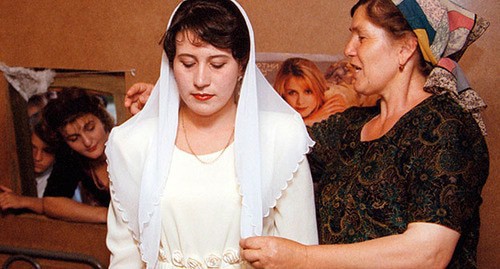Orientalists point to psychological effect of restarting weddings in Chechnya
By being among the first to lift the ban on weddings, Chechen authorities want to somehow compensate for the psychological fatigue of local residents from quarantine, the experts interviewed by the "Caucasian Knot" have suggested.
The "Caucasian Knot" has reported that on May 25, the Mufti of Chechnya announced the lifting of the ban on marriage according to Islamic standards, which had been introduced because of the coronavirus pandemic, provided that crowded weddings were not held.
The lifting of the ban on marriage is a psychologically justified measure, says Mikhail Roschin, a senior researcher at the Institute of Oriental Studies of the Russian Academy of Sciences (RAS). "As I understand it, it's not about magnificent weddings, but about marriages with the Imam and several close relatives of the newlyweds. Given a gradual lifting of restrictions this is logical. Weddings can bring a festive moods and joy to people's lives, therefore, they were allowed in the first place," Mr Roschin explained to the "Caucasian Knot" correspondent.
In his opinion, this can partially relieve the psychological fatigue of residents of Chechnya from the quarantine.
Professor Alexei Malashenko, the head of scientific studies at the "Dialogue of Civilizations" Institute, has put forward several versions of the reasons for lifting the ban on marriages.
"The authorities might have thought that the population was living very sadly and decided to lift this ban, so that a holiday appears in their life. But I also have an assumption that this decision is connected with an attempt to distract attention from news about Kadyrov's disease," Mr Malashenko has suggested.
On May 21, a source close to medical circles reported that Ramzan Kadyrov was under medical supervision because of suspected coronavirus. On May 26, after his long absence, the leader of Chechnya announced that he had held a meeting of the operational headquarters to combat the coronavirus infection.
This article was originally published on the Russian page of 24/7 Internet agency ‘Caucasian Knot’ on May 28, 2020 at 10:26 pm MSK. To access the full text of the article, click here.
Source: CK correspondent

